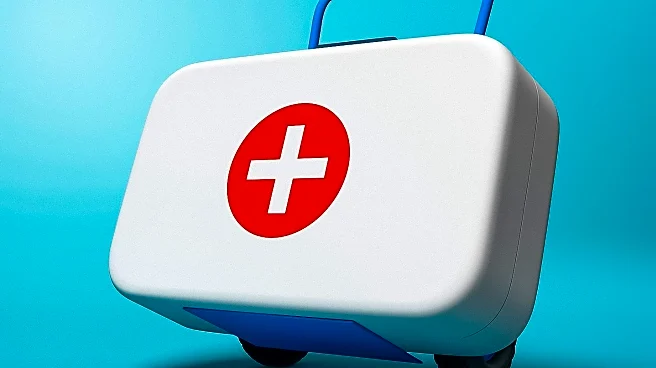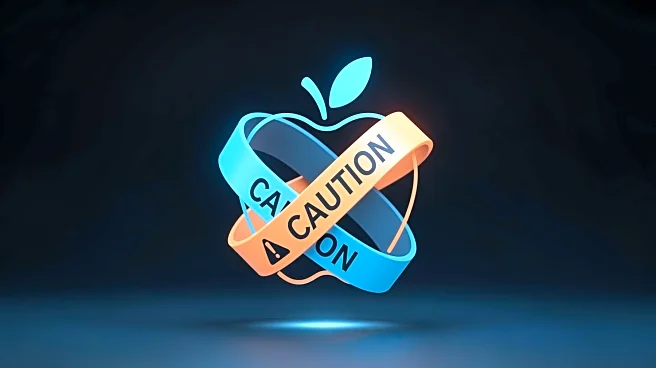What's Happening?
The healthcare sector is facing increasing challenges from data breaches and ransomware attacks, prompting calls for stronger cybersecurity measures. A significant update to the HIPAA Security Rule has been proposed by the U.S. Department of Health and Human Services (HHS), suggesting mandatory encryption of electronic protected health information (ePHI) both at rest and in transit. Historically, encryption under HIPAA was considered a best practice rather than a requirement, leading to vulnerabilities in data protection. The proposed changes aim to make encryption a standard practice, addressing the growing sophistication of cyber threats targeting healthcare organizations.
Why It's Important?
The proposed encryption mandate is crucial for safeguarding sensitive patient data, which is increasingly targeted by cybercriminals. Healthcare organizations are seen as high-value targets due to the nature of the data they handle and their tendency to pay ransoms. Implementing robust encryption measures not only protects patient privacy but also enhances operational integrity and positions organizations favorably during audits. Proactively adopting these measures can prevent patient harm, reputational damage, and financial penalties associated with data breaches. The move towards mandatory encryption reflects a broader trend of heightened scrutiny and regulatory response to cybersecurity threats in the healthcare industry.
What's Next?
Healthcare organizations are encouraged to act as if the proposed encryption rule is already in place, conducting thorough audits of their data protection strategies. This proactive approach will ensure compliance if the rule is finalized and will position organizations ahead of the regulatory curve. Additionally, adopting a zero-trust security model and providing ongoing staff training on data handling are recommended to further mitigate risks. As the threat landscape evolves, healthcare entities must prioritize encryption and comprehensive cybersecurity strategies to protect patient data and maintain trust with the communities they serve.
Beyond the Headlines
The push for mandatory encryption in healthcare highlights the ethical responsibility of organizations to protect patient data. Beyond compliance, this initiative underscores the importance of privacy and safety in healthcare, where data breaches can have severe consequences. The adoption of encryption and zero-trust models reflects a shift towards more resilient and secure healthcare systems, emphasizing the need for continuous adaptation to emerging cyber threats. This development also raises questions about the balance between regulatory mandates and organizational autonomy in implementing cybersecurity measures.









